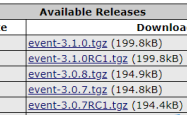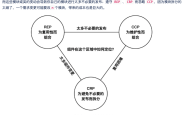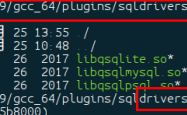Laravel find in set排序实例
做项目遇到个需求,需要对结果集中的数据进行指定规则的顺序排列。
例如,用户状态有四种:
=>未激活;1=>正常;2=>禁用;3=>软删除
现在的需求是,我要按照:正常->未激活->禁用->删除;这个顺序来进行排序,同时按照注册时间降序,网上查了很多资料,国内提到这个的很少,在stackOverFlow上找到了答案!
先上解决方案:
?| 1 2 3 4 5 6 7 8 9 10 11 12 13 14 15 16 17 18 19 20 21 22 23 24 25 26 27 | public function index( $customer_type = null) { $search = request( 'search' ); $perPage = request( 'perPage' ) ? request( 'perPage' ) : 10; $customer_type = $customer_type ? $customer_type : request( 'customer_type' ); // \DB::enableQueryLog(); $data = Customer::select([ 'id' , 'email' , 'user_name' , 'nick_name' , 'status' , 'phone' , 'create_time' ]) ->where( 'customer_type' , '=' , $customer_type ) ->where( function ( $query ) use ( $search ) { if ( $search ) { $query ->where( 'user_name' , 'like binary' , '%' . $search . '%' ) ->orWhere( 'nick_name' , 'like binary' , '%' . $search . '%' ) ->orWhere( 'phone' , 'like binary' , '%' . $search . '%' ) ->orWhere( 'email' , 'like binary' , '%' . $search . '%' ); } }) ->orderByRaw( "FIELD(status, " . implode( ", " , [1, 2, 0, 3, 4]) . ")" ) ->orderBy( 'create_time' , 'desc' ) ->paginate( $perPage ); // $query = \DB::getQueryLog(); // dd($data); //追加额外参数,例如搜索条件 $appendData = $data ->appends( array ( 'search' => $search , 'perPage' => $perPage , )); return view( 'admin/customer/customerList' , compact( 'data' )); } |
打印出来的sql语句如下:
?| 1 2 3 4 5 6 7 8 9 10 11 12 13 14 15 16 | array :2 [▼ => array :3 [▼ “query” => “select count (*) as aggregate from customer where customer_type = ?” “bindings” => array :1 [▼ => “1” ] “time” => 2.08 ] => array :3 [▼ “query” => “select id, email, user_name, nick_name, status, phone, create_time from customer where customer_type = ? order by FIELD(status, 1, 2, 0, 3, 4), create_time desc limit 10 offset 0” “bindings” => array :1 [▼ => “1” ] “time” => 1.2 ] ] |
参考了以下链接:
https://stackoverflow.com/questions/42068986/laravel-weird-behavior-orderbyrawfield
https://stackoverflow.com/questions/34244455/how-to-use-not-find-in-set-in-laravel-5-1
https://stackoverflow.com/questions/35594450/find-in-set-in-laravel-example/35594503
find_in_set 复杂应用:
?| 1 2 3 4 5 6 7 8 9 10 11 12 13 14 15 16 17 18 19 20 21 22 23 24 25 26 27 28 29 30 31 32 33 34 35 36 37 38 39 40 41 42 43 44 45 46 47 48 49 50 | public function get_teacher_list( $timeType , $name , $perPage = 10, $personality = 0, $teachingStyle = 0, $ageType = 0) { // \DB::enableQueryLog(); $result_data = DB::table( 'teacher_info as ti' ) ->select( 'ti.*' ) ->join( 'customer' , 'customer.id' , '=' , 'ti.customer_id' ) ->where( function ( $query ) use ( $personality ) { if (trim( $personality )) { $query ->whereRaw( "find_in_set($personality,ti.label_ids)" ); } }) ->where( function ( $query ) use ( $teachingStyle ) { if (trim( $teachingStyle )) { $query ->whereRaw( "find_in_set($teachingStyle,ti.label_ids)" ); } }) ->where( function ( $query ) use ( $ageType ) { if (trim( $ageType )) { $ageType = explode ( '-' , $ageType ); $query ->whereRaw( "DATE_FORMAT(FROM_DAYS(TO_DAYS(NOW())-TO_DAYS(birthday)), '%Y')+0 between $ageType[0] and $ageType[1]" ); } }) ->where( function ( $query ) use ( $timeType ) { //1本周,2下周 if ( $timeType == 1) { $query ->where( 'ti.can_appointment_1' , 1); } elseif ( $timeType == 2) { $query ->where( 'ti.can_appointment_2' , 1); } else { $query ->where( 'ti.can_appointment_1' , '>' , 0) ->orWhere( 'ti.can_appointment_2' , '>' , 0); } }) ->where( function ( $query ) use ( $name ) { if (trim( $name )) { $query ->where( 'ti.chinese_name' , 'like' , '%' . $name . '%' ) ->orWhere( 'ti.english_name' , 'like' , '%' . $name . '%' ); } }) ->where( 'ti.status' , 1) ->orderBy( 'ti.total_teach_num' , 'desc' ) ->orderBy( 'ti.total_star_num' , 'desc' ) ->orderBy( 'ti.satisfaction' , 'desc' ) ->orderBy( 'ti.comment_num' , 'desc' ) ->orderBy( 'ti.english_name' , 'asc' ) ->paginate( $perPage ); // dd($result_data, \DB::getQueryLog()); return $result_data ; } |
专门拿出来看一下:
?| 1 2 3 4 5 6 7 | $ids = array (1,17,2); $ids_ordered = implode( ',' , $ids ); $items = User::whereIn( 'id' , $ids ) ->orderByRaw(DB::raw( "FIELD(id, $ids_ordered)" )) ->get(); |
以上这篇Laravel find in set排序实例就是小编分享给大家的全部内容了,希望能给大家一个参考,也希望大家多多支持服务器之家。
原文链接:https://blog.csdn.net/zhezhebie/article/details/78357354
1.本站遵循行业规范,任何转载的稿件都会明确标注作者和来源;2.本站的原创文章,请转载时务必注明文章作者和来源,不尊重原创的行为我们将追究责任;3.作者投稿可能会经我们编辑修改或补充。











